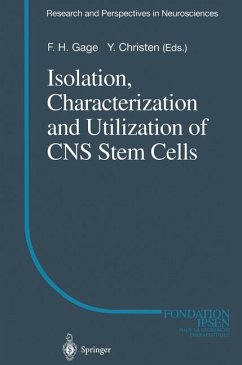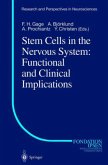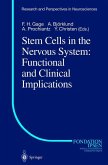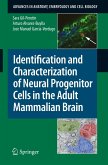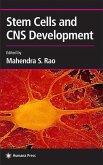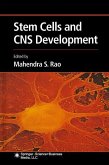This volume is based on a meeting of the Fondation IPSEN, held in Paris on Sep tember 18, 1995 to address the main issues of nervous system stem cells biology. Cell replacement in the adult mammals is not unusual outside the nervous sys tem. In fact, the nervous system is unique in lacking the ability to replace cells, following damage. Most neurons, in the adult central nervous system are termin of the organism and are not replaced ally differentiated, exist through the life when they die. There are, however, regions of the postnatal brain that continue to produce new neurons, but the fate and longevity of those cells are not well known. Evidence exists that small populations of neurons continue to be born in the adult ventricular zone, olfactory epithelium and hippocampus. In the adult hippocampus, newly born neurons originate from putative stem cells that exist in the sub granular zone of the dentate gyrus. Progeny of these putative stem cells differentiate into neurons in thegranular layer within a month of the cells' birth, and this late neurogenesis continues throughout the adult life of the rodent. By understanding the nature of progenitor cells present in the embryonic and adult brains, the change in their population dynamics during development, and the factors that influence their proliferation, fate choice and differentiation, it may be possible to develop a strategy to manipulate cells in situ to treat neuro degenerative diseases or the injured adult brain.

